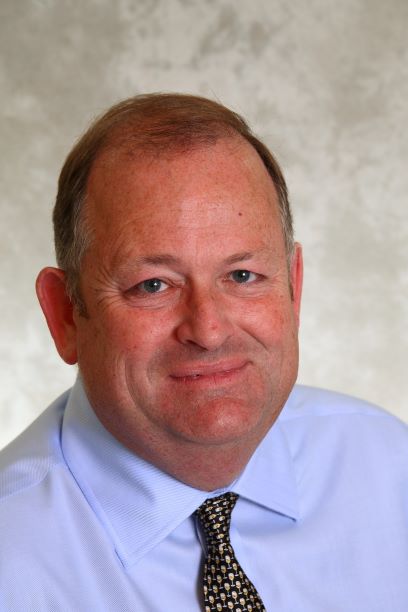Agrochemicals
Responding to demand for innovation in agrochemicals 23rd August 2018
By Dr Chris Urch, Head of Chemistry at Redag Crop Protection
Dr Chris Urch, Head of Chemistry at Redag Crop Protection, discusses the impact of recent mergers and acquisitions on innova

Dr Chris Urch, Head of Chemistry at Redag Crop Protection, discusses the impact of recent mergers and acquisitions on innovation in the agrochemicals industry, and explains how his company is meeting growing demand for expertise in agrochemicals discovery research.
Consolidation within the agrochemicals industry has been a constant over recent decades, leading to a greatly reduced number of companies involved in agrochemical discovery research. Whereas there used to be 20-30 companies actively researching novel active ingredients, the major companies in this arena have been reduced to a handful (Syngenta, Bayer, BASF, Corteva, Sumitomo and FMC). A staggering 80% of all patented agrochemicals have come from these six companies in recent years. As a consequence of these mergers and acquisitions, the number of chemists involved in product discovery. and the sources of innovation, have been reduced substantially.
However, in any changing environment, opportunities present themselves to those with the ability and agility to respond. Redag is unique as a start-up company with the sole aim of helping with the discovery of novel agrochemicals. The company’s goal is to help fill the gaps in innovation that have been created as a result of recent mergers and acquisitions.
The agrochemical industry uses four main approaches to find new products:
- Rational design
- High-throughput screening
- Natural products
- Other manufacturers’ products and patents.
The first three are capital and/or resource intensive. Therefore, Redag has specifically adopted the fourth approach, which allows entry into an active chemical area with minimum outlay. As a small innovative and flexible company, it can mitigate its risks and increase its chance of success by building on the research of the major companies. An additional advantage is that it is an area that has been validated by the company where it originated, and so increases the likelihood of compounds being registerable. Furthermore, Redag might only be 18 months behind the originating company, so enabling partners to come to market as it is developing, to fully exploit new areas of chemistry.
Redag’s approach to design is a combination of chemical design experience and molecular modelling. In addition, use is made of the Redox Switch approach, which focuses on changing the oxidation state of key fragments of the molecule.
Using this approach, Redag has discovered and patented a number of agrochemical areas. The company has built a portfolio of projects which cover the key areas of the pesticide market, with lead compounds field tested and demonstrating very high levels of performance. Redag had its first patent granted in 2018; several patents have been published and there are a number of very promising areas of chemistry where patents have been submitted and will be published in the coming months. Those in which it has patents published include a PPO herbicide with activity on grass and broad-leaved weeds with the potential to be a non-selective herbicide and an oomycete fungicide of claimed novel mode of action.
This business model generates intellectual property in novel agrochemicals and then licences it to larger companies to develop. Selling the rights to a project, a patent or an individual compound are all possible.
This type of activity should increase innovation in the agrochemical market, particularly in light of the ongoing reduction due to consolidation amongst major companies. In addition, there are increasing regulatory pressures on many products, particularly in Europe, and as always, resistance is constantly reducing the effectiveness of established products. When these factors are combined, an increasing pressure on products coupled with a decreasing supply, the need for additional research is highlighted.
Redag is seeking partners for projects, and would be pleased to speak to potential collaborators during the AgChem & Technology Congress in London on 20-21 November 2018.
Chris Urch will be speaking at the AgChem & Technology Congress in London on 20-21 November 2018. To download the agenda and find out more, visit www.agrichemeurope.com or get in touch with a member of the team at events@kisacoresearch.com or +44 (0)203 696 2920. If you’re ready to register, don’t forget that Chemicals Knowledge Hub readers are entitled to a 10% discount off their pass. Simply quote CKH10 at the time of booking.
Author:
Chris Urch, Head of Chemistry at Redag Crop Protection Ltd, 2nd Floor BioHub, Mereside, Alderley Park, Macclesfield, SK10 4TG, UK.
Chris Urch, Head of Chemistry at Redag Crop Protection Ltd, 2nd Floor BioHub, Mereside, Alderley Park, Macclesfield, SK10 4TG, UK.
T: +44 (0) 1625 238972
www.redagcrop.com
About Redag Crop Protection Ltd:
Redag is an agrochemicals discovery research company. It is involved in all areas of agrochemicals, namely fungicides, herbicides, insecticides and nematicides. Its approach is to undertake early to late stage discovery research and then either partner projects with or sell projects to larger companies with the financial resources to develop the compounds to market.



